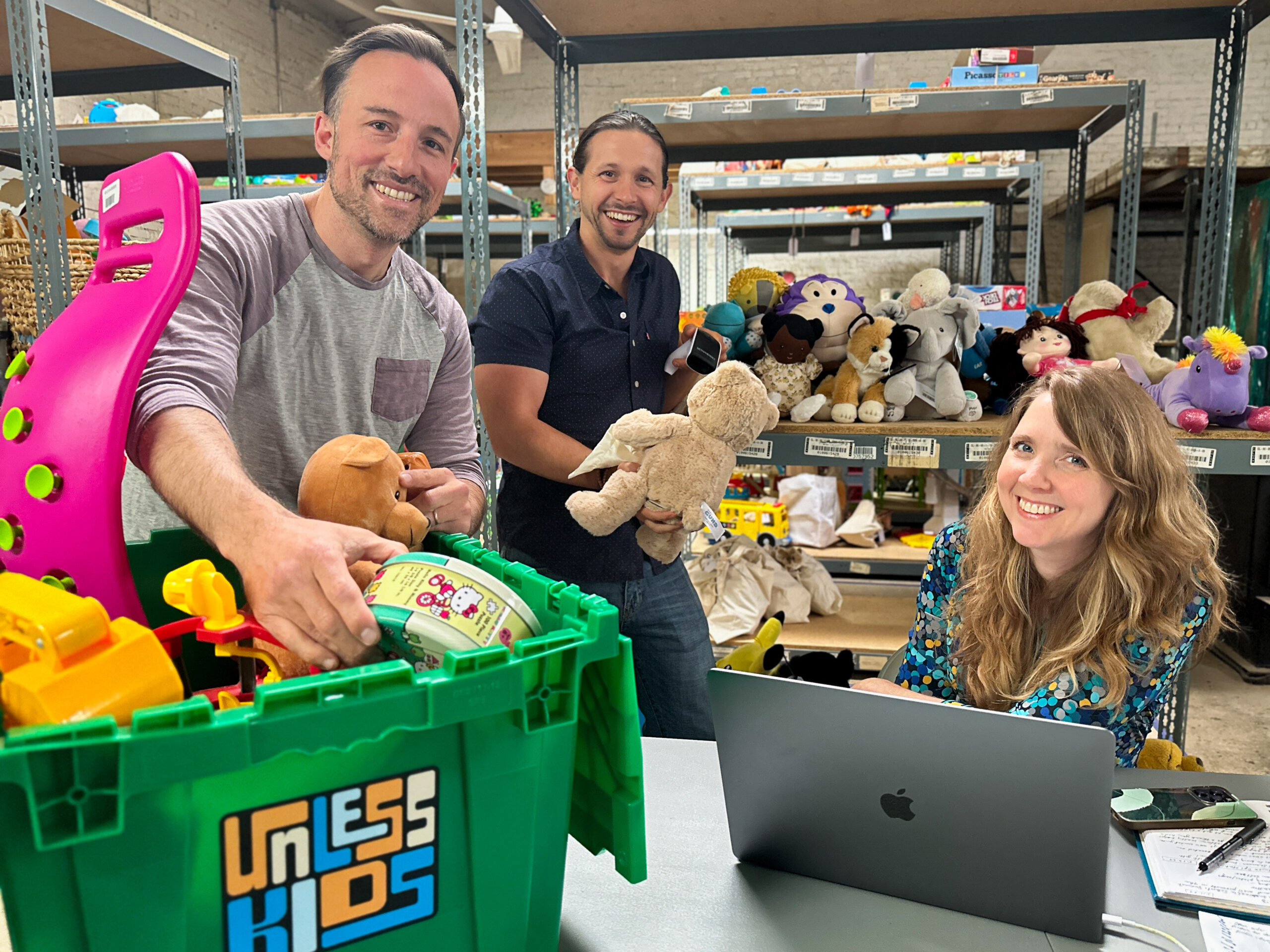For parents with basements and closets stuffed with clutter, a new sustainable option for buying and getting rid of toys is starting in Philadelphia.
Unless Kids allows people to purchase used toys for a discounted rate from its platform. When buyers finish with the toys, they simply return them to Unless Kids to be used by another family. The company launched a six month pilot with 50 users earlier this month in the River Wards neighborhood. It started as a spinout of waste reduction startup Circa Systems, but founders hope it proves the value of a circular economy so they can expand to other markets.
“Our premise is why make 10,000 things and try to sell them 10,000 times when you take 1,000 items and sell them 10,000 times,” founder and CEO Nic Esposito told Technical.ly. “We really think that’s the future of our impact.”
Esposito, Samantha Wittchen and Blake Carroll started Circa Systems, formerly Circa Tech, last year. The company aims to reduce waste through systems that emphasize reusing products. Circa Systems plans to create multiple brand distinct platforms for different types of products such as Unless Kids for toys and future spinouts for clothes and sporting equipment.
Unless Kids solves a founder’s personal conundrum
Circa Systems started with toys because of Esposito’s personal experience as a parent dealing with a surplus of his kids’ toys. Children outgrow toys relatively quickly, but the types of toys, like action figures or building blocks, remain ageless. There will always be other groups of kids coming up that want to play with those toys, he said.
The four-person company collected over 2,000 toys from more than 75 families in Philadelphia over the last six months as it built up its inventory. It has a warehouse in Frankford to store everything.
On the Unless Kids platform, users can select as many toys as they want to use at a discounted price. The toys on the platform are in varying conditions, from brand new to “well loved.” The average price of toys on the platform is $15, Esposito said.
Once the user’s order is placed, Circa Systems’ warehouse fulfills the order and delivers it to their house. Families can keep the toy for however long they want. When they’re done with it, the family simply places a new order to be delivered. An Unless Kids delivery person will pick up the old toys and reenters them into the inventory system for someone else to buy and use. The toys are cleaned and sanitized before being sent to families.
The Unless Kids inventory system tracks where all the toys are, so if a buyer decides to keep the toy forever instead of sending it back, Unless Kids charges them the full price of the toy based on condition. People who consistently and punctually return their toys can also get discounts on future orders, according to the website.
“How we built the system was really for that autonomy that people really want because that’s what they get on normal e-commerce sites,” Esposito said. “It’s not a subscription, it’s not like you have to buy this many toys or you have to give this many back.”
A pre-seed round will help Unless Kids build out the model
The theme of sustainability runs through every aspect of the company, from making toy deliveries on an e-bike to avoiding disposable packaging and using reusable identifier tags on toys, according to Esposito.
Circa Systems is currently raising a pre-seed round, raking in $250,000 so far and hoping to close the round at $350,000. This funding would support the Unless Kids pilot and hiring more staff.
Short term, the company hopes to eventually expand its pilot from River Wards to other areas of Philadelphia and build out its customer base and inventory. Esposito would also like to eventually create a registry system that would allow users to select toys they want ahead of time. Then, friends and family members can view their account and buy things off that list for birthdays and holidays.
“[It’s] really great that we can serve our community, while also having this larger vision for how we can contribute as much as possible to the circular economy,” Esposito said. “I do believe it’s the future of every way we do things, especially retail.”
➡️Read more
- Nic Esposito is launching a platform to bring retail into the circular economy
- RealLIST Startups 2024: Meet 10 of Philly’s most promising early-stage tech companies
This article was updated at 3:30 p.m.







